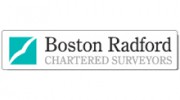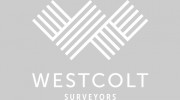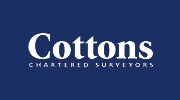Recognize Excellence, Celebrate Achievement
Boston Radford is a well-established firm of Chartered Surveyors, specialising in the intricacies of leasehold enfranchisement since 1978. Our team brings together over a century of combined experience, making us one of the most seasoned practices in Prime Central London. Our team comprises Charles Boston, Simon Radford, and David Radford, all of whom possess in-depth knowledge and expertise in enfranchising houses and negotiating lease extensions and enfranchisement claims.
Our Specialisation: Leasehold Enfranchisement
Boston Radford specialises in leasehold enfranchisement, a complex area of property law that has evolved significantly since the Leasehold Reform Act of 1967. This pioneering legislation was the first of its kind to grant leaseholders the right to enfranchise, enabling them to acquire the freehold or an extended lease of their houses. Over the years, this legislation has been refined and expanded upon by numerous Acts of Parliament, statutory instruments, and landmark court decisions.
The current legislation provides for the enfranchisement of all houses, irrespective of their value, as long as they meet certain criteria. These conditions include:
a) The house must meet the definition of a house as outlined in section 2 of the Act and as further clarified by the Supreme Court in several landmark cases.
b) The original term of the lease must exceed 21 years.
c) The claimant must have owned the lease for at least two years and not have withdrawn an earlier claim within the past twelve months.
Despite the broadened scope of qualification, there are still various valuation bases that apply depending on historical rateable or rental values. Determining the correct valuation basis is crucial, as it significantly impacts the enfranchisement price.
Lease Extensions
While the Leasehold Reform Act of 1967 gave leaseholders the right to acquire the freehold of their houses, it wasn't until the Leasehold Reform, Housing and Urban Development Act of 1993 that owners of flats and maisonettes were granted equivalent rights. However, these rights are not truly equivalent to enfranchisement for two main reasons:
1. The law only permits a tenant to extend their lease, meaning they remains subject to the previous lease's covenants (excluding ground rent).
2. The extension is an additional ninety years, which in many cases, does not entirely eliminate the diminishing aspect of their investment.
In most cases, a ninety-year extension will bring the flat close to its maximum value, especially since the new lease cannot contain a ground rent obligation. However, this is not enfranchisement. The only way for a tenant to acquire a share of the freehold is through collective enfranchisement.
Collective Enfranchisement
Collective enfranchisement involves a group of leaseholders coming together to acquire the freehold of their block, a provision introduced in the Leasehold Reform, Housing and Urban Development Act of 1993. For any collective enfranchisement to succeed, a significant amount of coordination between lessees is required, along with someone to manage the process. At Boston Radford, we work closely with residents' associations and their chosen solicitors, helping to organise participation, allocate costs, and deal with the reversionary value of leases owned by non-participating lessees. At least 50% of the lessees must participate for collective enfranchisement to proceed.

Be the first to review Boston Radford.
Write a Review


